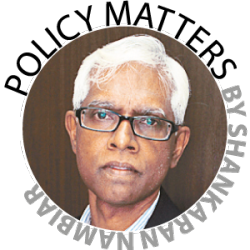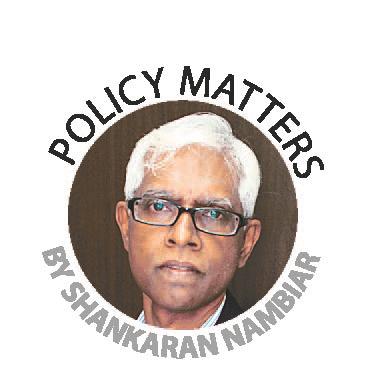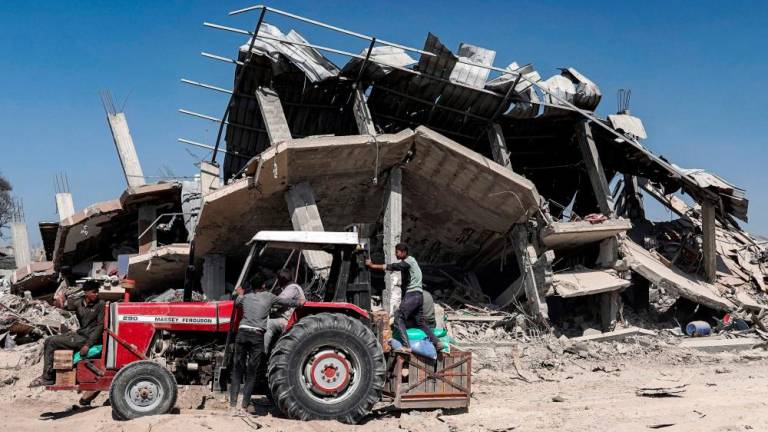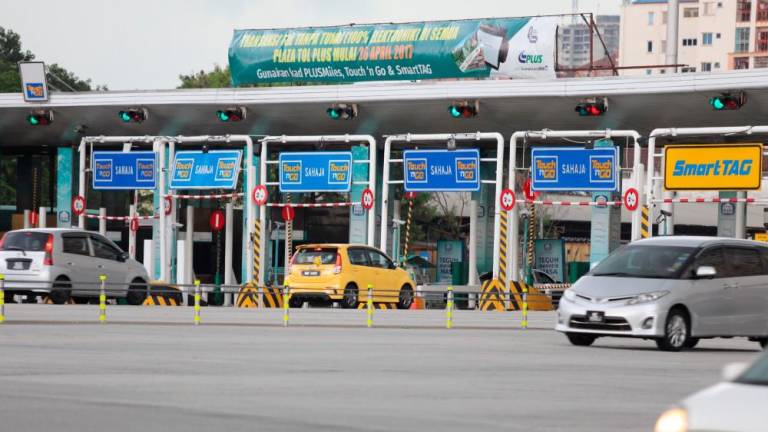ANDERS Tegnell is an epidemiologist at Sweden’s Public Health Agency, which advises the government on measures to tackle the Covid-19 outbreak.
He has provocatively announced that, “lockdowns are ridiculous”. The evidence does not support Tegnell’s bravado.
Sweden has a much higher fatality rate than its neighbours. Finland has 14 fatalities per million, Denmark 55 per million, and Sweden 131 per million people.
It is not as if the Swedes are convinced by Tegnell’s policies or his dramatic outbursts. Twenty-two leading scientists expressed their dissatisfaction with the government’s policies, claiming that the authorities have to safeguard the interests of the Swedish public.
Sweden has legal constraints to consider in introducing policy measures. Its law does not permit nationwide lockdowns and laws on communicable diseases are based on voluntary, not coercive measures.
For a prime minister who seriously saw MCOs as a measure to contain the spread of the coronavirus, it is surprising that Tan Sri Muhiyiddin Yassin is now a convert to Tegnell’s views.
The prime minister is correct to point out that the damage to the economy will be extensive. But the extent of impairment should have been obvious the moment Bank Negara Malaysia came out with its forecasts.
The forecasts for 2020 by the World Bank and International Monetary Fund did not present a pretty picture. Neither did the Malaysian Institute of Economic Research underplay the extent of job losses.
The government should have been well-aware of the precarious economic situation from the start of the movement control order (MCO) policy.
What they have not been aware of and are probably still not fully sensitive to is the enormity of the problem. Malaysia and the world are struck by twin crises – a public health crisis and an economic crisis.
Singapore experimented with an approach that prioritised the economy over public health; and the results were hugely unsatisfactory. It now has a problem that puts it in an unfavourable position.
Since there are two aspects to the issue: a public health problem and an economic aspect, governments have the unenvious task of flattening the curve and dampening the macroeconomic impact.
It might be tempting to concentrate solely on reducing disease and death before attending to reviving the economy. That may not be feasible since the virus will not go away soon.
Neither is it acceptable to let nature take its course and to allow people to develop immunity because that entails accepting more deaths than necessary. The Swedish model may not be tolerated in Malaysia if the death rates are high.
Between these extremes a middle path is possible, one where movement restrictions are reduced as death rates come down and the rate of transmission is at a tolerable level; not by lifting movement controls at a time when the rate of infection and deaths are increasing.
Ideally, economic sectors should be opened up gradually based on two factors. One, depending on how crucial the sector is in terms of its contribution to GDP. Two, by assessing whether or not the sector poses a hazard to the spread of the disease.
The undeniable fact is that domestic and global demand is going down the floor, shipping is stagnant, supply chains are fractured, raw materials cannot be imported – and most important of all household income is low and going to get lower.
Businesses must be allowed to resume operations for sure, but in a phased and careful manner.
Opening businesses in a hurry to markets that do not exist is only a way to prolong the public health crisis.
Datuk Seri Dr Noor Hisham Abdullah, the director-general of health, is a sincere civil servant, who has observed the highest standards of integrity by stating that right now the safest place to be is in one’s home.
It appears that he is not an advocate of the “herd” immunity strategy that disregards lockdowns and sees deaths as collateral damage in the effort to build social immunity.
The nine states that will not adopt the conditional MCO, preferring to maintain the status quo, are obviously of the view that it is wise to choose gradualism in lifting the MCO.
It should not be forgotten that markets are made up of people. An economy burdened with deaths, high rates of disease, low household incomes and poor consumer and business confidence is not going to produce vibrant markets.
We should not see restoring health and the economy as two opposite ends of the spectrum, but as a process where the containment of the pandemic works towards the gradual opening of the economy.
If this sounds bleak, one should contemplate what Gita Gopinath, the chief economist of the IMF said when she pointed out that “this makes the Great Lockdown the worst recession since the Great Depression, and far worse than the Global Financial Crisis.”
UN secretary-general Antonio Guterres was not comforting when he warned that the coronavirus crisis is the most challenging crisis since WWII.
It is in times such as this that governments should play their role in full force, making it their business to support uncertain workers and ailing businesses, all the while trying to restore confidence.
Dr Shankaran Nambiar, is a senior research fellow at the Malaysian Institute of Economic Research. He is author of Malaysia: At the Edge of Transformation. The views expressed in this article are his own and not those of any institution he is associated with.














